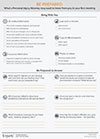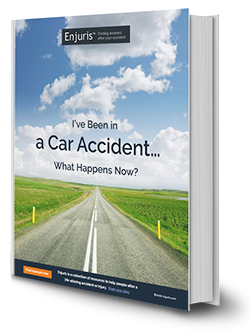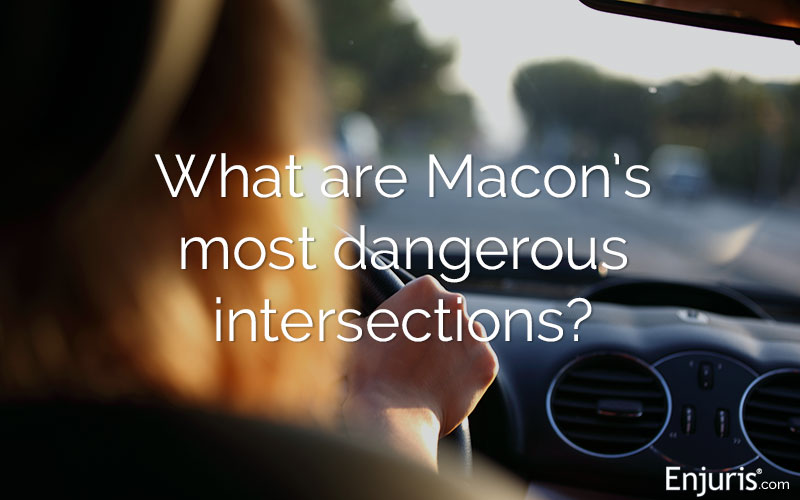Critical things you should know about Georgia car accidents
If you or a loved one was the victim a of a serious car accident in Georgia, you may need to hire an attorney. It may be tempting to just settle with the insurance company, but you could be entitled to more financial compensation than you realize. Though fender benders rarely require an attorney, any car wreck with significant harm to either you, your passenger or even your car would benefit from a consultation with an experienced car accident attorney.
How to tell if you can bring your car accident to court in Georgia
Many car accident victims don’t realize that they have the right to start a lawsuit in Georgia. You may worry that you don’t know who was at fault. You also may question how much your car was worth or how much you are entitled to receive for your injuries.
It’s important to remember that you only need to satisfy two criteria to have a personal injury cause of action in Georgia:
1. You sustained injuries; a loved one was killed in a car accident; or your car sustained significant damage.
2. The other party was at least 51% at fault for the accident.
Though these are easy criteria to meet, accidents are confusing and overwhelming. Experienced personal injury attorneys will review your case and help you make sense of your situation. Don’t be discouraged if you are told you don’t have a claim. Sometimes, the settlement from the insurance company really is the best option.
Causes of car accidents in Georgia
With so many Atlanta commuters and vacation seekers along the coast, Georgia roads are busier than many other states. Unfortunately, more drivers equals more accidents. Georgia ranks 4th in the country for traffic fatalities. The Department of Transportation reported 1,549 deaths in 2017 alone. Many of these fatalities occur on high risk stretches of highway throughout the state, such as the I-20 and I-75 corridors.
Common causes of auto accidents include:
- Distracted drivers
- Drivers under the influence of drugs or alcohol
- Speeding
- Driving recklessly
- Failure to yield or follow traffic signs
- Driving in hazardous weather conditions
- Inexperienced drivers
- Following another vehicle too closely
- Drivers falling asleep behind the wheel
Because Georgia is a modified comparative fault state, you may still recover damages if you committed any of the above driving offenses, with the exception of dangerous practices such as drinking and driving. A judge or jury panel will decide if your actions were less than 50% to blame for the car wreck. As long as you fall below 50%, you will still be eligible to recover damages. A personal injury attorney is the best person to speak with if you aren’t sure who will be blamed for the accident.
Common injuries from car accidents
How serious a car accident appears often has little to do with the injuries involved. A car may be totaled yet the driver can walk away with only a broken bone. On the other hand, a fender bender may result in death if injuries aren’t treated properly or quickly enough. Whiplash and concussions may not have noticeable symptoms, for example, but can result in severe health consequences.
This is why it’s critical that you visit the emergency room or make an appointment with your primary care doctor immediately after a car accident.
Other common injuries include:
- Head/brain injuries
- Spinal cord injuries/paralysis
- Broken bones
- Disfigurement and scarring
Medical bills are typically part of accident compensation as well as any time you may have needed to take off from work due to doctor appointments or simply not feeling well. In order to keep track of all your bills, use our expenses worksheet in order to help calculate all of your potential damages:

Damages worksheet to track expenses for your injury claim (medical treatment, property damage, lost wages, prescriptions)
Download in PDF format
What to do after a car accident in Georgia
It’s easy to be rattled after a car accident. Your primary concern is to check on the well-being of yourself and your passengers. You may have undetectable injuries, so move slowly and don’t do anything that’s too painful. Wait for authorities to arrive if you or your passenger can’t move.
Assuming your injuries aren’t life threatening, follow these steps:
Post Accident Checklist:
- Call the police if there’s any apparent damage to your vehicle or if the other driver appears intoxicated or under the influence of drugs.
- Exchange contact and insurance information with the other driver, but say little else to prevent your words from being used against you.
- Get witness contact information as they may be needed to testify or provide a depositions.
- Photograph the scene, your vehicle and injuries (smart phone pictures are fine).
- Receive medical attention via the emergency room or schedule a post-accident check with your primary care physician.
- Contact your insurance company. If the other party’s insurance company tries to reach you, you should politely refuse to agree to anything offered until you speak with a personal injury attorney.
Car accidents with government vehicles
Government employees have a duty to drive in a safe and reasonable manner. Though common carriers like buses must use “extraordinary care” in order to avoid liability, the area is more gray when it comes to police cars, fire trucks and ambulances. As these are rescue vehicle, they’re allowed to speed and weave in and out of traffic when responding to an emergency, though safety is still important.
Whenever a car accident involves government property, such as a collision with public transportation or government service vehicles, such as garbage trucks or school buses, there are special regulations in place. This is true if the accident occurs on government property as well. In most cases, the legal principle of “sovereign immunity” will take effect.
Sovereign immunity means that a person will only win damages from the government in a very limited set of circumstances. More often than not, the government won’t be responsible for providing any compensation—especially when government employees were responding to an emergency. Only in situations of gross negligence or criminal behavior will a plaintiff be awarded financial compensation from the government.
If you were involved in an accident with a government vehicle in Georgia, we strongly recommend that you contact a personal injury attorney.
To receive compensation for any damages, your claim must be filed against the responsible party on time and in the right manner.
The timeframe for a claim against the government is shorter than other statute of limitations.
In Georgia, you must follow your personal injury claim according to these deadlines:
- With a city or county vehicle, the deadline is approximately 6 months after the accident.
- If the vehicle was a state vehicle, the deadline is approximately 1 year after the incident.
- If your accident involved a federal government vehicle, you must file an administrative claim with the responsible government department within 2 years of the accident. If your claim is denied, you have 6 months after the rejection to pursue legal action in court.
As time isn’t on your side with these claims, the sooner you can schedule a consultation with a qualified attorney, the better.
$2.9 million
What you need to bring to a car accident claim consultation
Many people are nervous at their first meeting with a personal injury attorney. A lawsuit may seem intimidating, and if you’re recovering from an accident, you may not be feeling well. To make the first meeting easier for you, it’s best to gather all of the necessary materials in advance. Your car accident attorney may ask you to bring:
1. Your driver’s license
2. Your insurance information
3. Any medical bills and documents you have connected to the accident
4. Salary information including your current wages, how much time you missed from work, if you used any paid leave, etc.
5. A copy of the police report
6. Any receipts from an auto repair shop or rental car company
7. The contact information from the other driver and witnesses
8. Any legal documents you already completed or received from the other party
9. Any photographs you may have of the scene of the accident, your injuries or of your car
10. A list of questions
To help you keep track of all this information, we recommend downloading and printing the following free resources:

A worksheet to prepare for your first meeting with a personal injury attorney – what to bring, what they'll ask
Download in PDF format

Worksheet with questions to ask a personal injury attorney to help determine if he or she will be a good fit for your case
Download in PDF format
Not all of these items are necessary for a first meeting, but the more you have, the better the attorney will be able to evaluate your case.
When you’re ready to take legal action, read our guide for how to pick a personal injury attorney and browse our list of Georgia personal injury attorneys to find the legal expert for is the right fit for your case.
- Accidents Caused by Road Defects and Road Debris in Georgia
- Boating and Watercraft Accidents in Georgia
- Georgia Distracted Driving Laws & Statistics
- Georgia Hit and Run Accidents
- Guide to Bicycle Accidents in Georgia
- Guide to Bus Accidents in Georgia
- Guide to Georgia Drunk Driving Accidents: Recovering Damages
- Guide to Georgia Railroad Accidents and Personal Injury Claims
- Plane Crashes and Other Aviation Accidents in Georgia
- Understanding Auto Insurance Coverage in Georgia
- What is Joshua’s Law, & Does It Save Lives in Georgia?
- What You Need to Know About Georgia Motorcycle Accidents
- What You Need to Know about Georgia Pedestrian Accidents
Did you know that car accident law varies by state?
What does an injury lawyer do?
A personal injury lawyer helps individuals who have sustained injuries in accidents to recover financial compensation. These funds are often needed to pay for medical treatment, make up for lost wages and provide compensation for injuries suffered. Sometimes a case that seems simple at first may become more complicated. In these cases, consider hiring an experienced personal injury lawyer. Read more
There are several dangerous intersections in Macon and some unsettling local data about traffic accident fatalities in recent years. Learn about the statistics, laws and how to find an injury lawyer.
More on Macon car accident statistics & what to do after a crash
Need a lawyer?
















